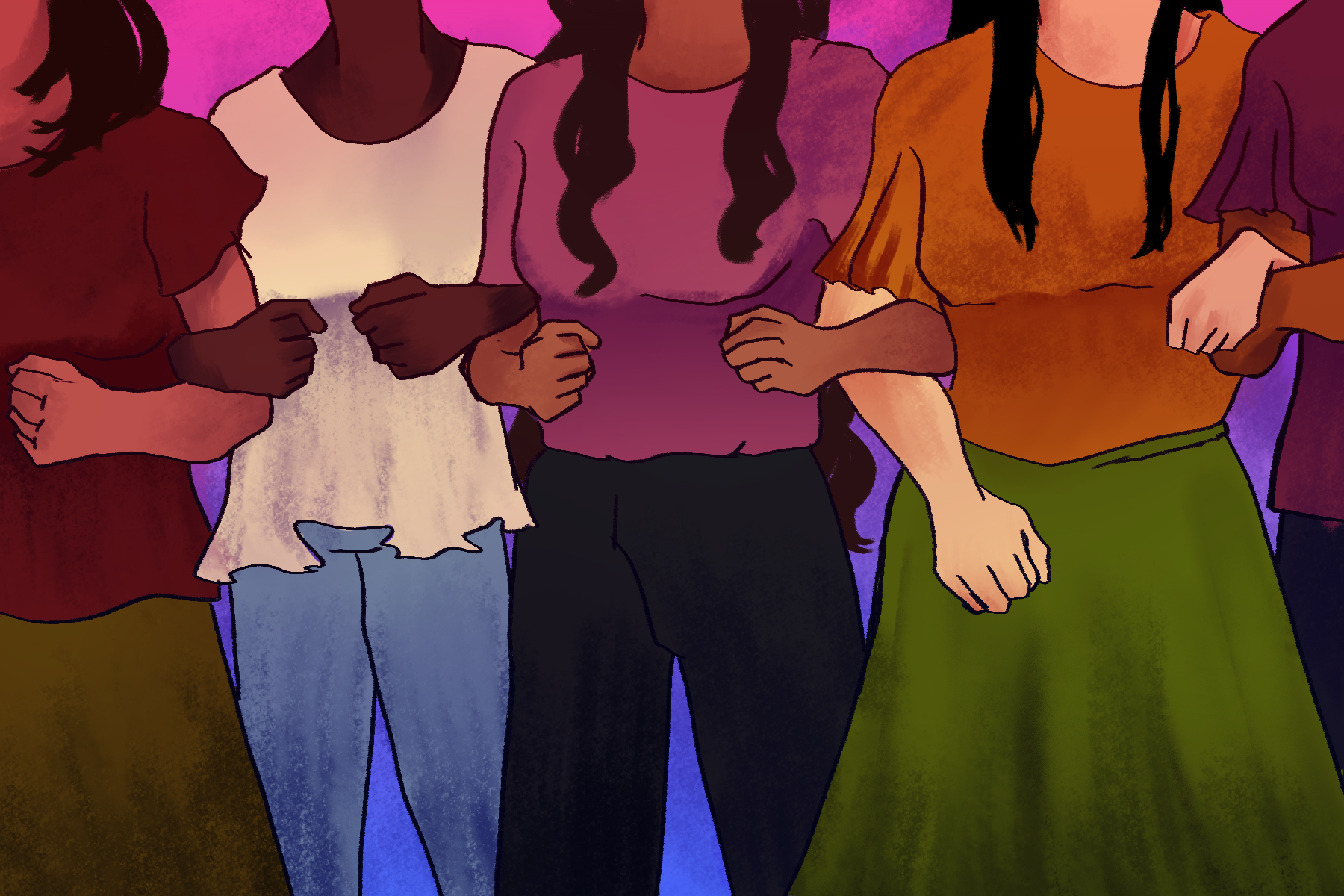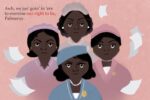If you’re someone who acknowledges that the feminist movement is integral to our society; if you’re someone who actively participates in this fight for equality between all genders; if you recognize that there are a multitude of groups that the feminist movement has left behind; and perhaps most importantly, if you don’t ascribe to any of these identities, Mikki Kendall’s debut essay collection, “Hood Feminism: Notes from the Women That a Movement Forgot,” is a transformational read.
Wildly charismatic and passionate with an all-encompassing energy for eliciting change, Mikki Kendall is a New York Times bestselling writer, speaker and blogger whose work has appeared in The Washington Post, The Boston Globe, The Guardian, Time, Salon, Ebony and Essence, to name a few places.
Beyond her literary acclamations, she’s additionally an accomplished public speaker, most noted for her discussions on race, feminism, Chicago violence, tech, pop culture and social media on “Good Morning America,” “The Daily Show,” MSNBC, NPR, Al Jazeera’s “The Listening Post,” BBC’s “Woman’s Hour,” Huff Post Live and numerous universities across the country.
Kendall is additionally a retired veteran who lives in Chicago with her family and has amassed quite the Twitter following.
White Lady Racism and the Need for Self-Awareness
The feminist movement has excluded groups in their fight for equality by prioritizing white, cisgender, able-bodied individuals while leaving women of color, people with disabilities and non-cisgender women behind. As Feminists Act! notes, this is an age-old issue that is “as storied as the feminist movement itself.”
Recently though, it’s clear that the 2017 Women’s March has re-invigorated the conversation around how white women see themselves. We’ve reached a point where we can no longer ignore and fail to include — all — women in the feminist fight for equality. It’s time for white women — and white-passing women — to start having these difficult conversations with themselves and to use their privilege to bolster the fight for equality for all women, not just for white, cis-gender, able-bodied women.
“Hood Feminism” Topics
In other words, it’s crucial that white women become self-aware of their complicity in the racism, homophobia, transphobia and ableism that continuously keep all women from reaping the benefits that white women have been profiting from for centuries. “Hood Feminism” is a timely, mobilizing read that acknowledges these gaps, women being left behind in the feminist movement and the dire consequences of this exclusion.
“Hood Feminism” is replete with clear examples of the ways in which the feminist movement has been lacking in solidarity. Kendall’s chapters focus on these overlooked issues that disproportionally affect women of color, non-cisgender women and women with disabilities alike, such as gun violence, hunger, poverty, education, housing, reproductive justice and more.
Other chapters, such as “Black Girls Don’t Have Eating Disorders” and “The Hood Doesn’t Hate Smart People,” challenge the harmful, racist, perpetuated myths that negatively impact women of color. Every single chapter, regardless of its topic and scope, zeros in on the experiences of the marginalized, as opposed to viewing feminist issues from the all-too-common white, female gaze.
One stark example from “Hood Feminism” in particular explores when videos from multiple cities emerged of young Black girls being brutally body-slammed by school officers while mainstream — white — feminist groups failed to act. Instead, the work necessary to advocate for the young girls fell solely on racial justice organizations. This example quite blatantly shows the hypocrisy of the feminist movement that claims to be opposed to violence against women and yet fails to act when a clear act of injustice occurs.
Another striking example of feminist inaction is evident in the hyper-sexualization of women of color under the guise of “empowerment.” Calling women of color “exotic,” “angry,” “thick” or commenting on their “unique” hair all perpetuate harmful tropes and the fetishization of Black and brown bodies.
Film only further perpetuates this harmful hyper-sexualization of women of color. A stark example is how white women see sexy Pocahontas as an “empowering look” instead of acknowledging the facts — how this hyper-sexualization only fetishizes the rape of an Indigenous child at the hands of a white man. This can be seen with the “angry Black woman” trope, as well as the idealized “Mammy and Nanny expectations” in movies like “The Help.”
“Hood Feminism” and Hard-Truths/Takeaways
Kendall doesn’t shy away from cementing the hard-truths, most notably, “the distinct likelihood that some women are oppressing others … White women can oppress women of color, straight women can oppress lesbian women, cis women can oppress trans women, and so on.” In other words, “Hood Feminism” affirms that truly representative feminism must resist the “tendency to assume that all women are experiencing the same struggles.”
Instead, it’s important to acknowledge the inequities and ingrained racism, homophobia, ableism and transphobia that wreak havoc on our society. We must acknowledge that marginalized women experience starkly different struggles than white women. Hence, “an intersectional approach to feminism is key to improving relationships between communities of women, so that some measure of true solidarity can happen.”
Beyond simply being a searing indictment of mainstream feminism, “Hood Feminism” also serves as an invitation to do better: by broadening self-awareness, recognizing injustice and acting on these injustices — especially if in a position of privilege.
A clear example of how we can do better simply revolves around recognition; by acknowledging hunger as a feminist issue, Kendall encourages us to “stop acting like food insecurity is a sin or a shame for an individual and treat it rightfully as an indictment of our society.” Furthermore, she urges white women to make a change: to question their day-to-day privilege, to question why there are no women of color employed in their place of work, to question why Black women in the U.S. are paid 21% less than white women.
In sum, “Hood Feminism” insists that “feminism can’t afford to leave any woman behind — not cis, trans, disabled, sex workers, you name it.” Even though the path to inclusive feminism that acknowledges the centuries of unequal treatment will not be easy, it’s essential. A more encompassing, intersectional feminism is essential, as all women — no matter their race, their sexual orientation, their job or other factors — deserve equal treatment. As Kendall reminds us, “true feminist solidarity across racial lines means being willing to protect each other, speaking up when the missing women are not from your community, and calling out ways that predatory violence can span multiple communities.”
Kendall’s “Hood Feminism” is a transformational read that feminists and self-proclaimed “non-feminists” alike should be required to read. It’s a collection that brings awareness to the inequity that still ravages every facet of our society. It’s imperative that we realize that in order to call ourselves feminist, we must fully commit to intersectional feminism that prioritizes the equality of all women.

















